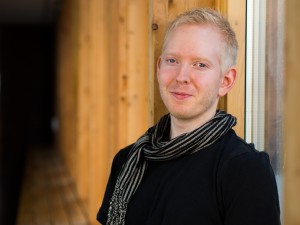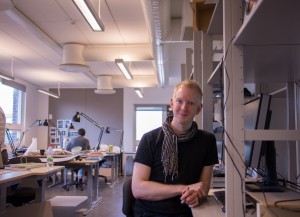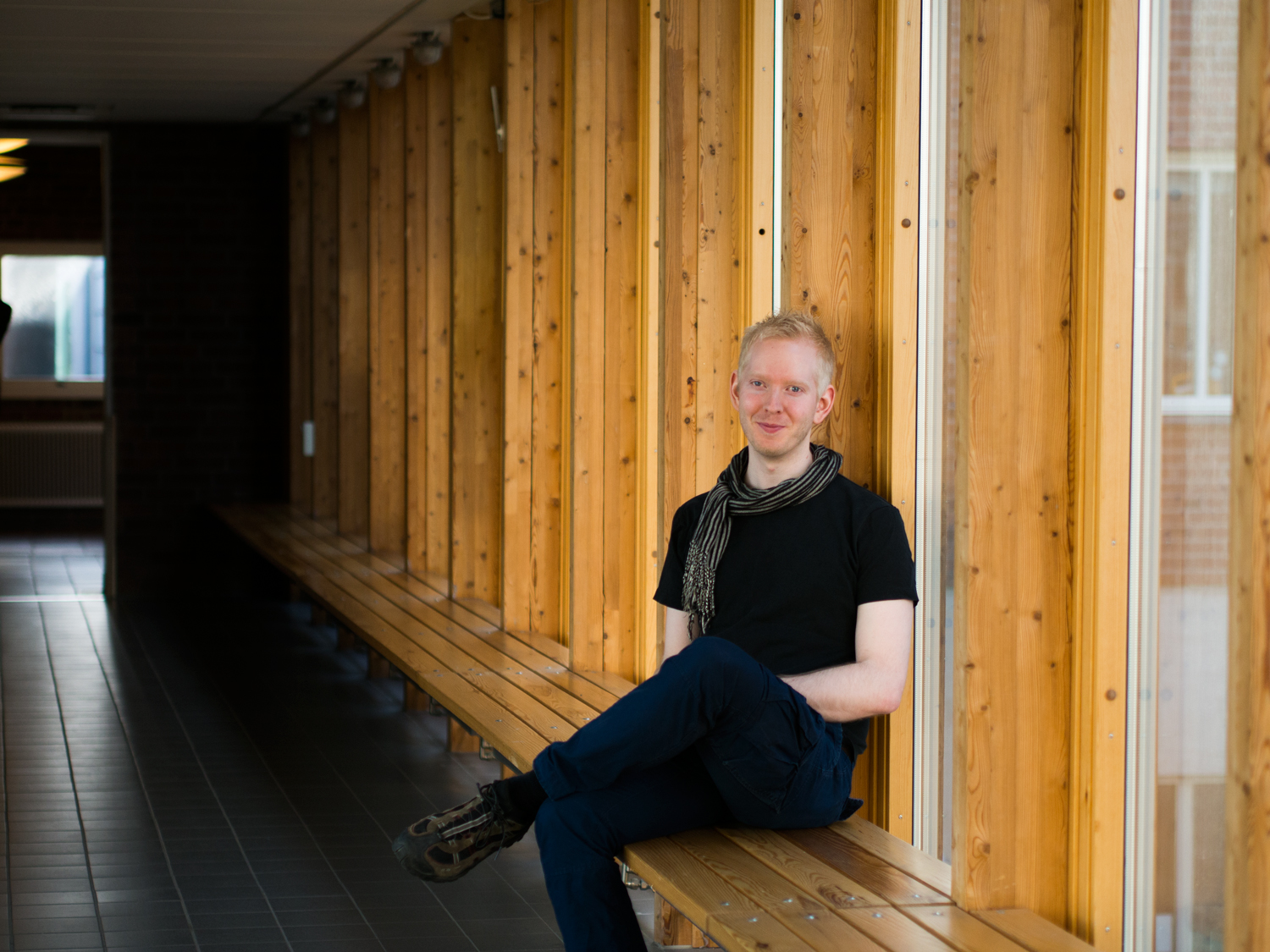Previously this year, 30-year-old Martin Götberg graduated in architecture at LTH. With a mere fifth of full visual capacity.

Photo: Xche Balam
Living with an impairing disability can be very inconvenient. Being a student with one might be even worse – especially if it has a direct effect on your studies.
Martin Götberg is a newly graduated architect at LTH, and suffers from albinism. The complications of his condition have given him a considerably deteriorated vision, and he is only able to use 20 percent of his visual acuity. Presumably, you would think that this is a drawback for an architect.
“A lot of visually impaired people are limited by prejudice. I want to prove that it’s possible to become an architect despite being visually impaired,” he says and continues sharing his philosophy:
“Just because your eyes are damaged, it doesn’t mean that your head is wrong.”
Martin’s physical complications force him to apply a higher level of visual sensibility to his surroundings, which others usually do not need to do. In a previously unfamiliar environment, he registers points of reference, which for next time enables him to move around fairly freely.
This is the result of a condition which he believes makes him unique among the country’s architect.
“Nobody has done this before. But I think it’s important to annihilate prejudice and prove that you can complete an educational program, in spite of lacking the same opportunities as everybody else,” he says.

Photo: Xche Balam
Life as an architect 25 years ago was by and large revolving around pen and paper. Primitive conditions under which Martin would have had problems operating properly. Today’s technical visual aids, combined with constant support from the University and the Department, have been defining resources.
“If I wouldn’t have had access to a computer, it would have been incredibly much more challenging,” says Martin Götberg, emphasizing the support from the University:
“Lund University and my Department have been great. I have always been given the necessary help whenever I have been in need, but I’ve had to live up to the same expectations as everybody else.”
In the future, Martin’s condition may not be a liability – quite the contrary. His rare way of viewing society, in this context, helps presenting an entirely new perspective. A downside that can be recycled to his advantage.
“My skills as an architect and my experiences of being visually impaired is a combination which may bring me some advantages. Maybe it’s something that others don’t have,” Martin Götberg concludes.
Text: Casper Danielsson
Translation: Maximilian Aleman-Tennell






